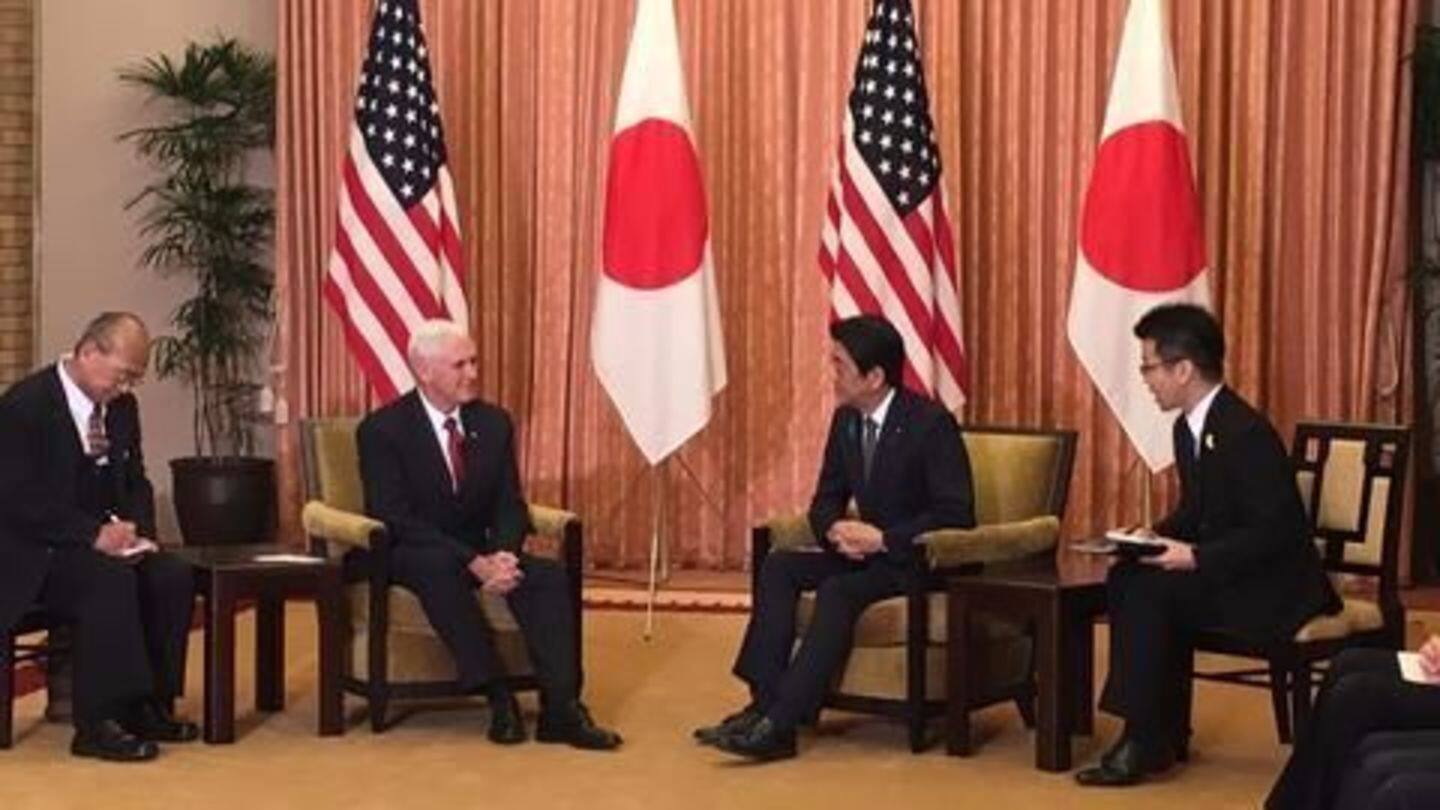
Pence reassures Japan of US' commitment on North Korea
What's the story
Vice-President Mike Pence reassured Japanese PM Shinzo Abe that Washington stands "100 percent" behind its chief ally in Asia in working towards the de-nuclearization of North Korea.
He said that the US' recent missile strikes in Syria and powerful anti-ISIS bombing in Afghanistan demonstrates the Trump administration's resolve.
Pence's visit comes amid heightened regional tensions following North Korea's failed ballistic missile launch on Sunday.
Introduction
About North Korea and its nuclear programs
For over decades now, North Korea has been the most secretive country; its nuclear weapons program has its roots in the 1950s.
It is believed that the country possesses over 1,000 missiles of different capabilities, including long-range ones that could strike the US.
The country's nuclear program progressed over decades; from tactical artillery rockets during the 1960-70s to the present day's nuclear warheads.
On China
Pence: US, allies must work with China on North Korea
Both Pence and Abe agreed they must convince China to play a larger role in dealing with North Korea.
"The era of strategic patience is over and while all options are on the table, President Trump is determined to work closely with Japan, with South Korea… and with China to achieve a peaceable resolution and the de-nuclearization of the Korean peninsula," Pence said.
Peaceful dialogue
Japan agrees China must be involved in dealing with Pyongyang
Abe said Japan wants to hold a peaceful dialogue with North Korea, "but at the same time, dialogue for the sake of dialogue is valueless."
He said pressure on the reclusive regime is crucial and agreed that China should play a larger role on this.
China has appealed for calm in the Korean Peninsula, hoping the US would also want to de-escalate the situation.
Rhetoric
North Korea threatened to destroy US, South Korea and Japan
Pence arrived in Japan from South Korea, another US ally.
North Korea regularly threatens to destroy South Korea, Japan and the US.
North Korea's representative to the UN accused the US of creating "a situation where nuclear war could break out at any time."
North Korea's vice foreign minister told the BBC that missiles would be tested on "a weekly, monthly and yearly basis."